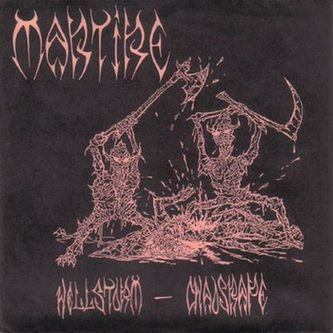Kraft - Official Website
Hellstorm - Chaosrape |
Portugal
 |
|---|

Review by Adam M on July 26, 2016.
Numenorean performs their own take on post black metal. Soundscapes here are long and drawn out to the maximum extent. The music has a decidedly shoegaze effect when taken at first glance. This makes for a different type of black metal than what is typically performed.
The music has as much in common with Alcest as it does with Emperor and it’s all the better for it. The guitar passages are long and winding which might lead the band to be thrown in a progressive direction. However, it’s the similarity to post-rock of the passages that gives them their post-black tag. They simply have that ethereal moody quality to them that would indicate a post influence. This music has more in common with Alcest than Neurosis, however, and is more post in the almost shoegaze sense. Vocals are shrieked over top of the music and make up perhaps the least compelling aspect of the music here. Taken as a whole, the music is decidedly more interesting. However, the lack of a distinguishing characteristic makes this fall short of the mark. The music seems to glide by without completely catching your attention. There are still some passages that are more gripping than others, however. The first track Home gets the proceedings off to a strong start for example. This song is more intense and interesting than others on the album and features memorable moments. The vocals are still not the strong part to be found, it is the guitar rhythms that are generated. There is a wondrous quality to them in this song that is lacking otherwise. That feeling is more fleeting in the remainder of the tracks on the disc.
Still, there is some solid post metal material to be found on Home and those looking for stuff in that style will find a lot to like here.
Rating: 7.5 out of 10
